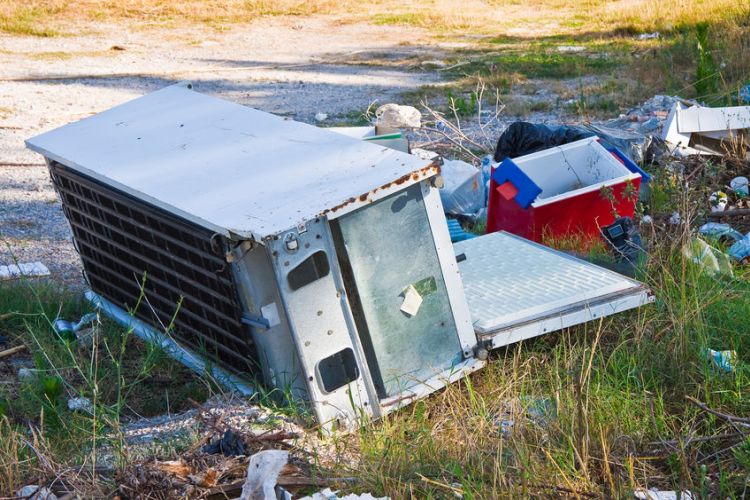
The economic impact of waste crime have been cited as the biggest problem for farmers and landowners, with those impacted having to pick up the financial cost of clean ups.
The finding is part of a new Environment Agency survey, launched in March, which assessed how landowners, farmers and associated sectors are impacted by the crime.
From the 836 people who responded to the survey, the top issues were large scale fly-tipping followed by illegal waste sites.
Just over half (55%) of respondents estimated that large-scale fly-tipping had increased over the past 12 months.
The economic impacts of waste crime were cited as a big issue, with 73% saying they paid out themselves for clean-ups, while 58% saw disruption to their business.
Nearly three in 10 of people who were affected by illegal exports of waste or illegal waste sites incurred over £50,000 of financial costs in the last year.
The survey results showed that farmers were most affected by large-scale fly-tipping, and 15% of landowners reported making an insurance claim to clear dumped waste.
Respondents estimated that just 25% of waste crime incidents are reported to the EA, yet waste industry employees estimate that just under 1 in 5 organisations (18%) in their sector commit some form of waste crime.
The Environment Agency said it will use the survey feedback to inform its enforcement action and sector engagement.
Last year the agency prosecuted nearly 100 individuals and companies for waste crime offences, with fines exceeding £900,000, 28 custodial sentences and £1m of confiscation orders.
Malcolm Lythgo, head of waste regulation said: “We know how frustrating and costly waste crime is for landowners, as well as those who manage their waste correctly but see others breaking the rules to gain an unfair competitive advantage.
“This survey gives us valuable insight into the views of our customers and those impacted by waste crime, and will help us in our fight against waste criminals.
"It will help us improve compliance of the waste sector and clamp down harder on those who show complete disregard for the environment and the law.”
The Joint Unit for Waste Crime was also launched in January to tackle the crime, and multi-agency operations have been continuing through the pandemic to disrupt activity.
The sharing of intelligence and enforcement within the Joint Unit means offenders can be targeted more effectively.
In October last year, the EA and the British Transport Police undertook a week of action tackling waste and metal crime.
Over 1,100 vehicles were stopped and 550 sites were visited. Over 150 offences were detected and 29 arrests made.
Those caught fly-tipping can be fined £400, with more serious offences leading to fines of up to £50,000 and two years in prison.
